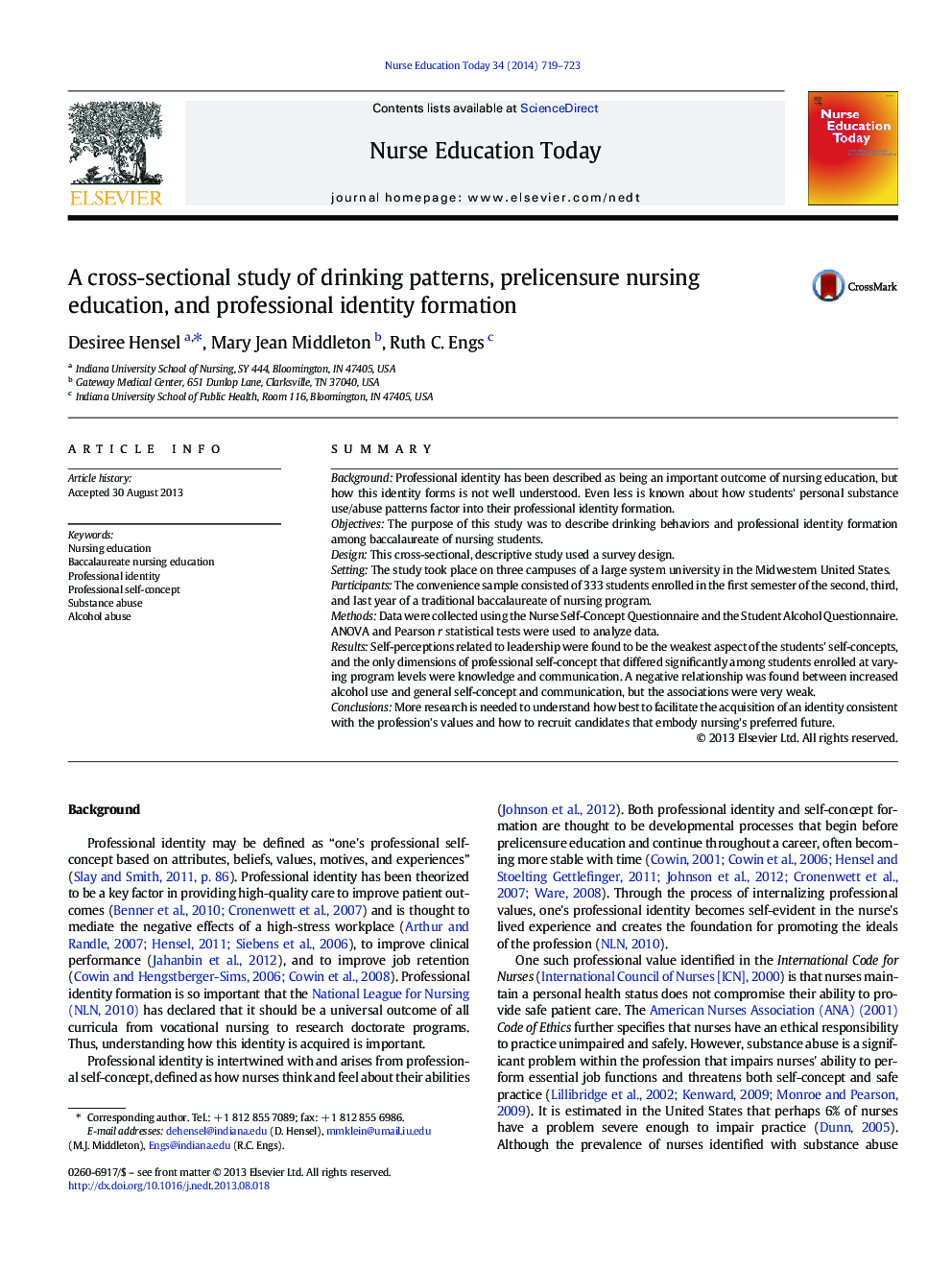| Article ID | Journal | Published Year | Pages | File Type |
|---|---|---|---|---|
| 368313 | Nurse Education Today | 2014 | 5 Pages |
summaryBackgroundProfessional identity has been described as being an important outcome of nursing education, but how this identity forms is not well understood. Even less is known about how students' personal substance use/abuse patterns factor into their professional identity formation.ObjectivesThe purpose of this study was to describe drinking behaviors and professional identity formation among baccalaureate of nursing students.DesignThis cross-sectional, descriptive study used a survey design.SettingThe study took place on three campuses of a large system university in the Midwestern United States.ParticipantsThe convenience sample consisted of 333 students enrolled in the first semester of the second, third, and last year of a traditional baccalaureate of nursing program.MethodsData were collected using the Nurse Self-Concept Questionnaire and the Student Alcohol Questionnaire. ANOVA and Pearson r statistical tests were used to analyze data.ResultsSelf-perceptions related to leadership were found to be the weakest aspect of the students' self-concepts, and the only dimensions of professional self-concept that differed significantly among students enrolled at varying program levels were knowledge and communication. A negative relationship was found between increased alcohol use and general self-concept and communication, but the associations were very weak.ConclusionsMore research is needed to understand how best to facilitate the acquisition of an identity consistent with the profession's values and how to recruit candidates that embody nursing's preferred future.
